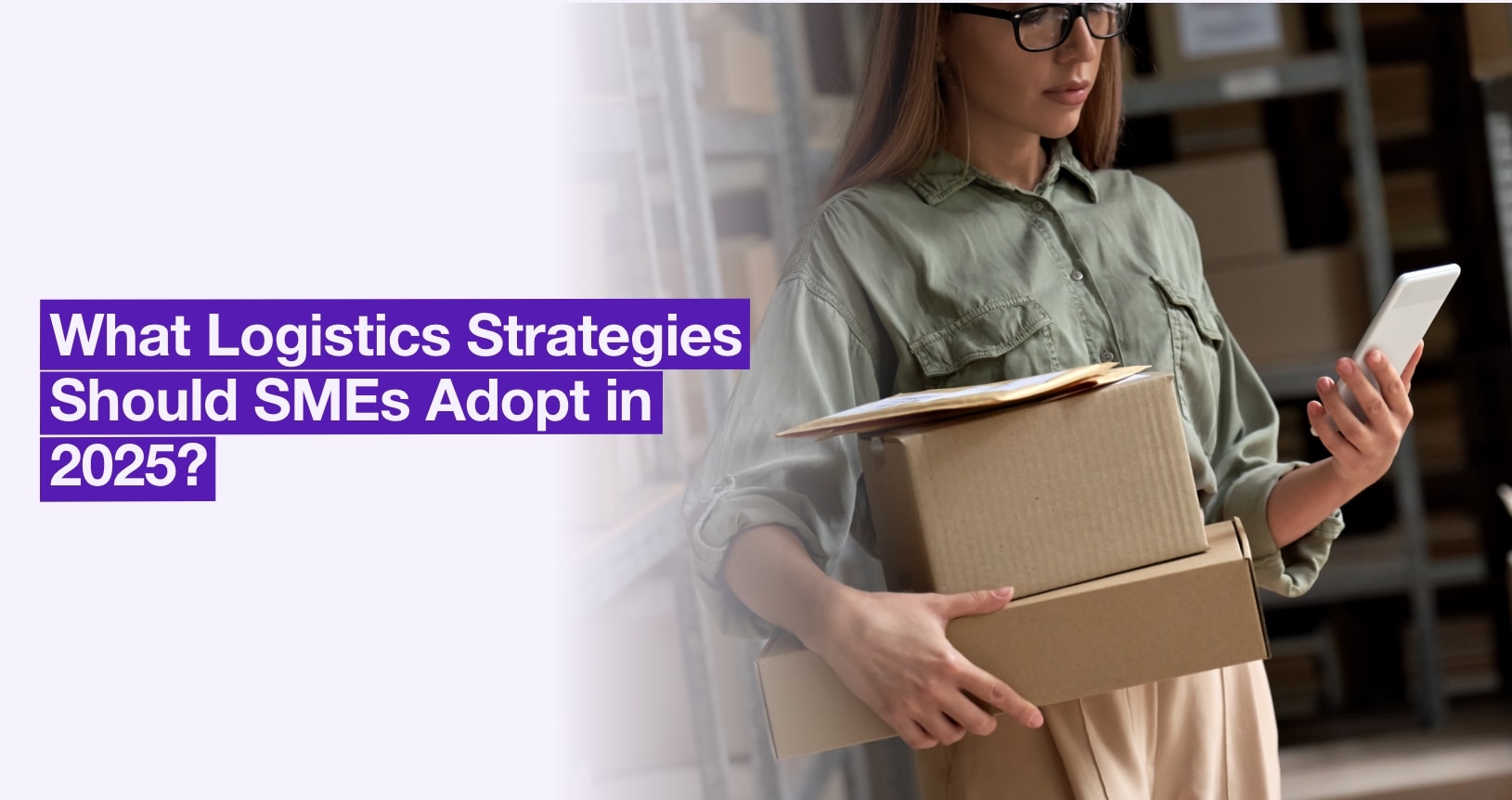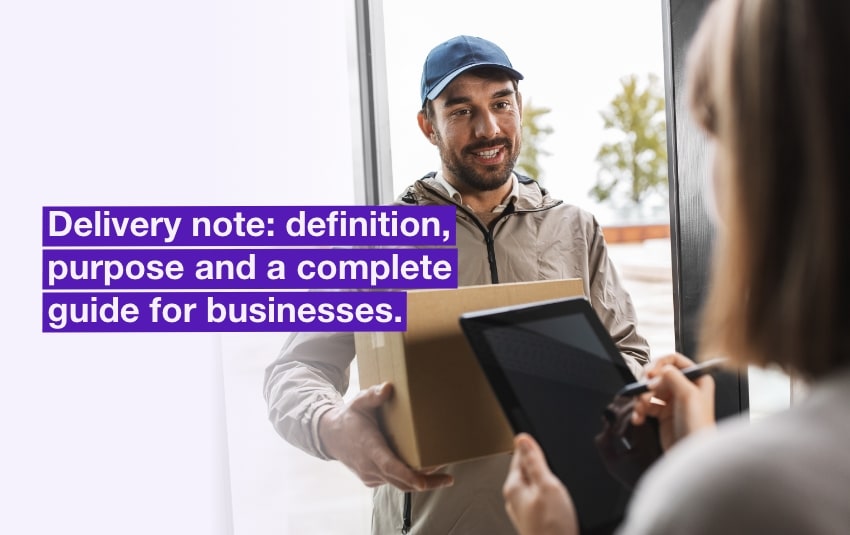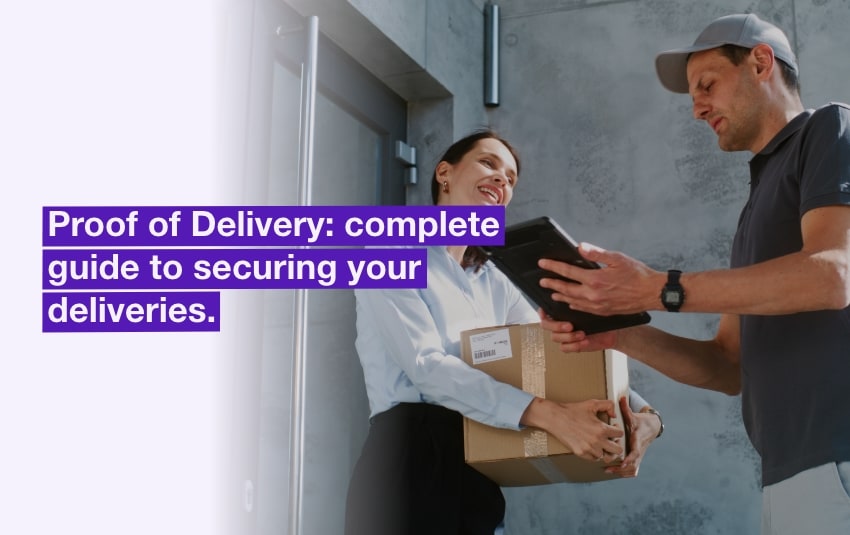What Logistics Strategies should SMEs be adopting in 2025?
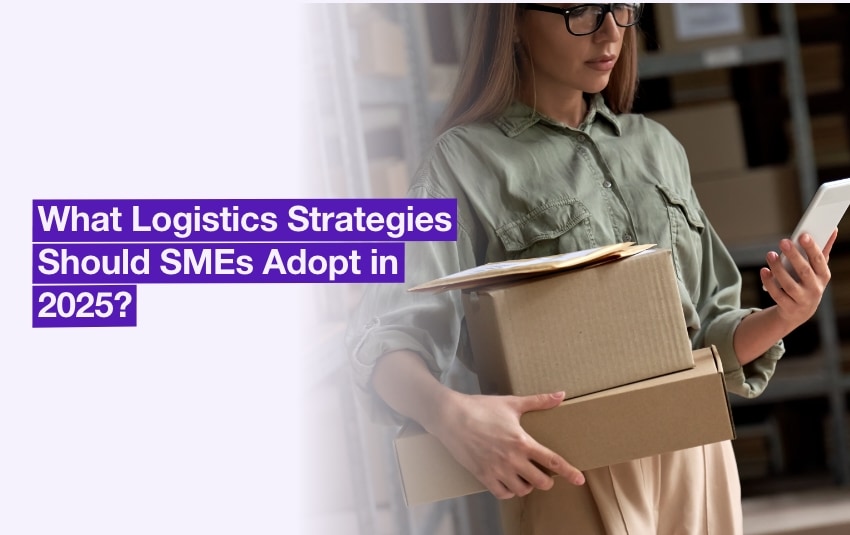
Do you run an SME and find managing your logistics a headache? Don’t worry, logistics management is no longer the preserve of large companies. It’s now an essential strategic lever for improving competitiveness, operational efficiency and customer satisfaction.
With technological advances, SMEs can improve their agility and anticipate logistics challenges. Faced with more demanding consumers and growing environmental challenges, it is essential to put in place a clear logistics strategy.
Would you like to know how? Discover the strategies you need to adopt to make your logistics an asset in 2025!
Table of contents:
- Developing a Solid Logistics Strategy
- Optimising Logistics for Greater Efficiency
- Customer Experience at the Heart of Logistics Strategy
Logistics strategy is becoming essential for SMEs seeking to become more competitive. Adopting the right strategy means optimising costs and boosting operational efficiency. It also helps to meet environmental and consumer expectations.
Developing a Solid Logistics Strategy
Understanding the importance of logistics strategy
Logistics is much more than simply moving goods. It’s a choreography where every move counts to deliver the right product, to the right place, at the right time. Whether you’re in fashion, food, retail or luxury goods, a well thought-out logistics strategy is no longer an option: it’s the key to customer satisfaction and profitability.
Why is a logistics strategy essential?
- Cost reduction: For an SME, every euro counts. By optimising transport, stocks and storage, you can reduce inefficiencies and avoid costly overstocking.
- Customer satisfaction: The customers expect speed and reliability. Efficient logistics means fast, personalised deliveries with real-time tracking.
- Resilience: Stock-outs, fluctuations in demand, crises… A well-defined logistics strategy means you can anticipate the unexpected, diversify suppliers and optimise stocks to turn challenges into opportunities.
- Competitiveness: By adopting up-to-date solutions such as warehouse management software (WMS) or transport management software (TMS) – like AntsRoute – you’re ready to seize new opportunities and enter new markets.
- Traceability and on-time delivery: Precise tracking and smooth information management ensure the quality and transparency your customers expect, strengthening their loyalty.
In short, a logistics strategy is not just an expense item: it is a genuine growth lever, where every optimisation can become a major competitive advantage.

Logistics strategy is a real growth lever.
Adopting a hybrid in-house/outsourcing approach
Should you manage everything in-house to keep control, or rely on external service providers for greater flexibility? The right balance between in-house and outsourced logistics operations is often a combination of the two. A hybrid strategy allows you to keep critical processes in-house, guaranteeing quality and control, while delegating non-essential tasks to specialist service providers. This gives you flexibility and the ability to respond quickly to market fluctuations, while keeping costs under control.
Key elements of a successful hybrid strategy:
- Keep strategic activities in-house: This preserves your know-how, guarantees quality and protects your sensitive data.
- Outsource non-strategic tasks: You benefit from external expertise while reducing fixed costs. You can concentrate on higher added-value activities.
- Implement appropriate governance: Communication between your in-house teams and your service providers is essential to ensure effective coordination.
This flexibility makes your supply chain more resilient to unforeseen events.
A comparative table highlighting the advantages of a hybrid approach:
| Criteria | Hybrid approach | In-house | Outsourcing |
| Flexibility | High | Low | High |
| Quality control | High | Full | Limited |
| Fixed costs | Reduced | High | Variable |
| Market responsiveness | Optimal | Limited | Variable |
| Innovation | Maximised | Limited | Access to external innovations |
| Data protection | Strong guarantees | Very strong | Limited |
Table showing the benefits of a hybrid logistics strategy.
Stand out from the competition with an effective differentiation strategy
To build a differentiation strategy, you need to understand your environment through an in-depth analysis. A SWOT analysis helps you to identify the strengths to build on, the weaknesses to correct and the opportunities to seize in the market. At the same time, benchmarking enables you to observe the practices of sector leaders and draw inspiration from those that work, while developing a unique offer.
This enables you to create a value proposition that retains your customers and attracts new segments. This distinct positioning helps you to establish yourself as a key player in your market, strengthening your competitiveness in a constantly changing environment.
Logistics Optimisation for Greater Efficiency
Automate key processes
Increasing efficiency means automating your logistics processes. Innovative tools such as WMS (Warehouse Management System), TMS (Transport Management System) and ERP (Enterprise Resource Planning) reduce errors, improve flow management and save precious time on repetitive tasks, allowing your teams to concentrate on high added-value activities. Imagine a logistics system where stock management, shipment planning and goods traceability almost take care of themselves. With our AntsRoute software, for example, you can optimise your delivery routes and stop wasting time planning them manually.
How do you target the right processes for automation?
- Identify time-consuming tasks: Prioritise those that are slowing down your operations (stock management, shipping, traceability).
- Analyse the impact: Focus on processes that have a direct effect on overall performance.
- Maximise ROI: Opt for automation that delivers rapid, measurable benefits.
Although automation requires an initial investment, it offers significant benefits: greater efficiency, reduced costs and time savings for your teams.
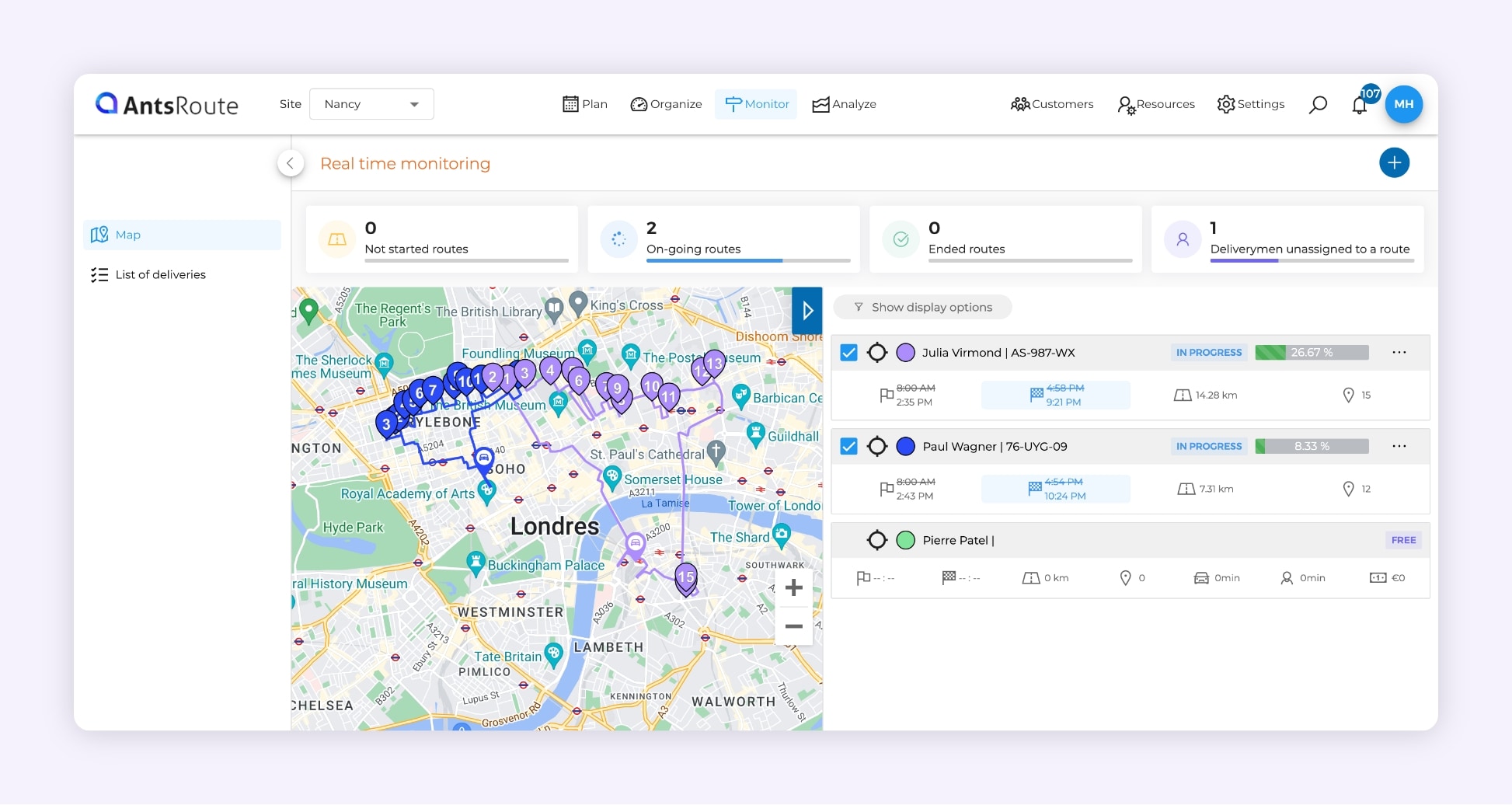
Optimising delivery routes on AntsRoute.
Continual improvement and adoption of innovative technologies
Operational efficiency and responsiveness are key assets for SMEs. That’s why continuous improvement, combined with the adoption of innovative technologies, is becoming an essential strategic lever. Approaches such as lean management and the Kaizen method, which advocate a constant re-evaluation of processes, are now reinforced by cutting-edge technologies such as the Internet of Things (IoT), artificial intelligence and machine learning, enabling greater visibility, traceability and real-time data analysis.
Collaborative robots and intelligent automation systems streamline operations, while solutions such as RFID sensors and the cloud centralise data for better management. Integrating these technologies into your logistics strategy creates a virtuous circle, generating gains in accuracy, speed and profitability, while making your SME more resilient to market challenges.
Adopting these technologies means entering the era of Logistics 4.0, where continual improvement and innovation feed off each other to optimise your processes and meet your customers’ expectations even better.
To make the most of this synergy, it is essential to establish a culture of continuous improvement within your SME:
- Encourage feedback from your operational teams.
- Regularly adjust processes according to the results obtained.
- Use real-time performance monitoring and management tools.
As you can see, there’s plenty to choose from!
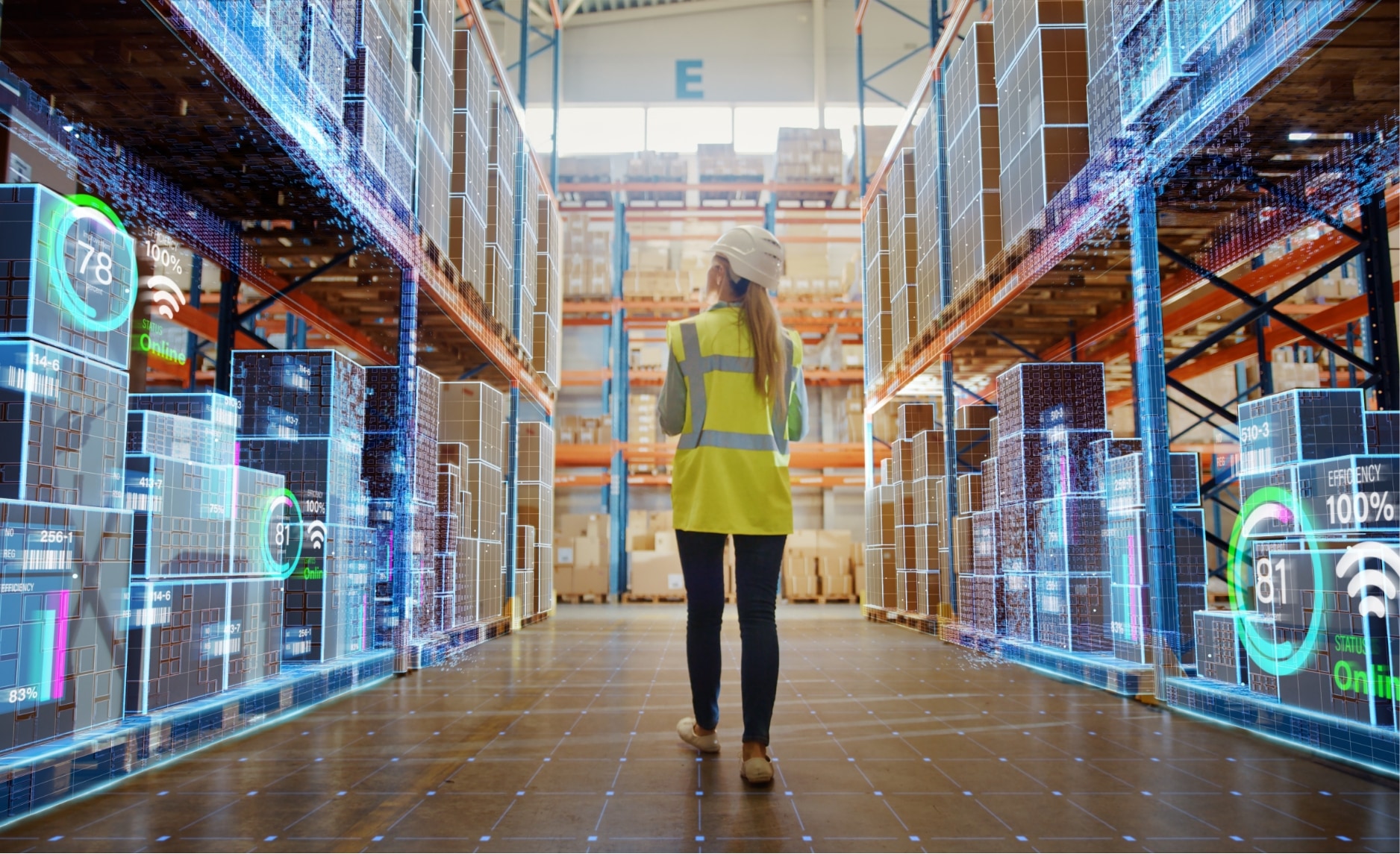
Artificial intelligence is revolutionising logistics processes.
Rely on sustainable and responsible logistics
The environmental challenges of today are unavoidable, and SMEs have a golden opportunity to integrate an eco-responsible approach into the heart of their logistics strategy. This means taking concrete action, such as reducing their carbon footprint by optimising delivery routes, using electric vehicles for the last mile, and introducing reverse logistics to encourage the recycling and reuse of products.
Green logistics do more than just improve the corporate image: they create real value while meeting the growing expectations of environmentally conscious consumers.
Measure logistics performance
To ensure that your logistics strategy is effective, you need to monitor key performance indicators (KPIs) such as delivery times, return rates and cost per order shipped. These indicators allow you to ensure that your objectives are reached and to adjust your strategy accordingly.
Reporting tools and interactive dashboards make it easy to monitor these KPIs in real time, giving you an overview of logistics performance. This enables you to quickly identify areas for improvement.
The most relevant KPIs include customer service rate, stock rotation, logistics costs, operations productivity and delivery quality. To be truly effective, these measures need to be supported by real-time data collection and analysis systems, such as ERP or WMS. This provides a balanced view of performance and aligns indicators with the company’s strategic objectives.
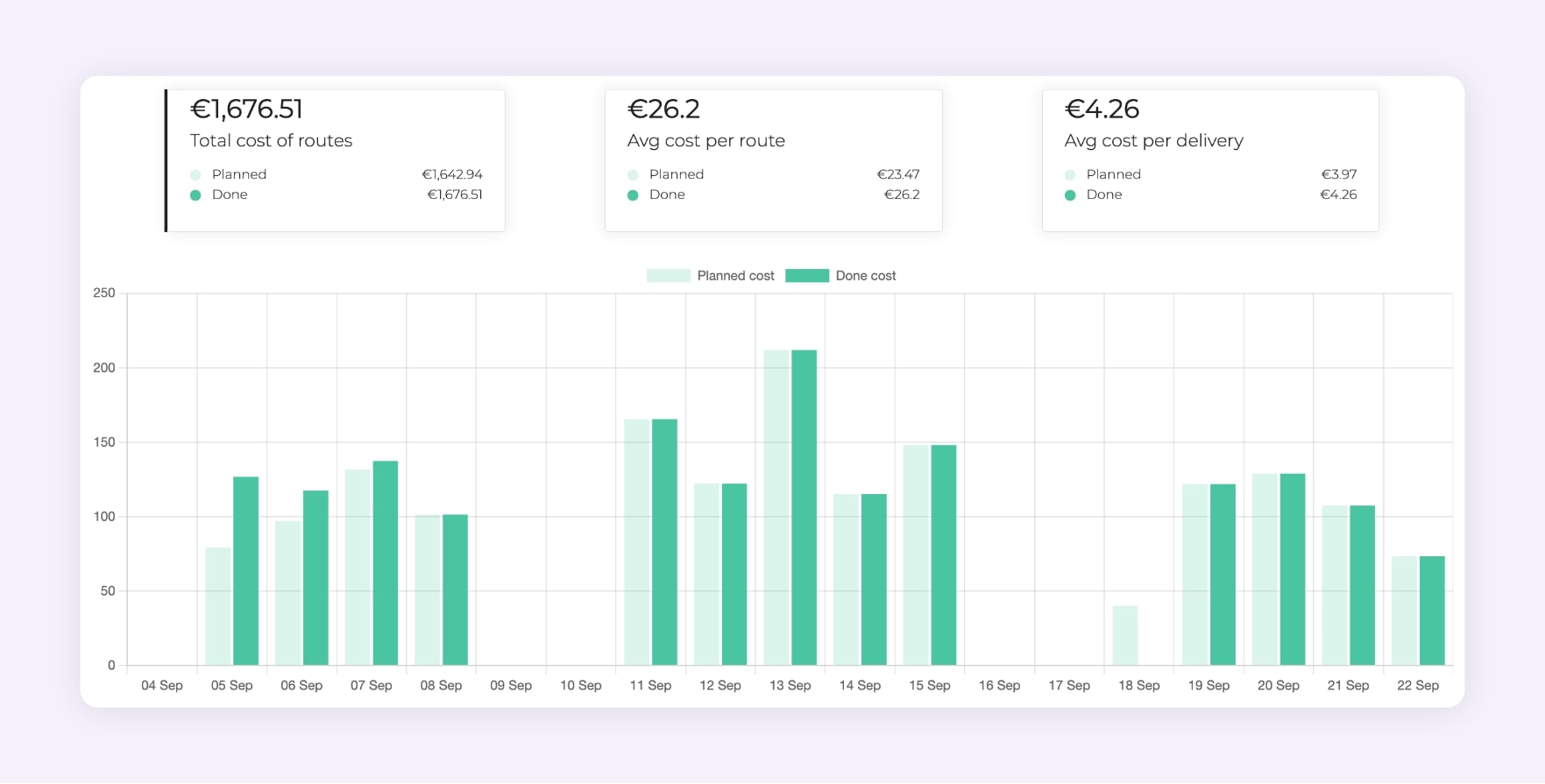
AntsRoute performance indicators on route costs.
Customer Experience at the Heart of Logistics Strategy
What strategy should you adopt to meet your customers’ requirements? Let’s find out!
Understand customer expectations
It all starts with understanding your customers’ expectations and needs. By incorporating this perspective into the design stage of your logistics strategy, you can align your operations with your customers’ aspirations. To do this, you need to :
- Carry out regular satisfaction surveys to gather feedback.
- Analyse customer feedback to identify areas for improvement.
- Set up chat groups to explore certain topics in greater depth and gather valuable insights.
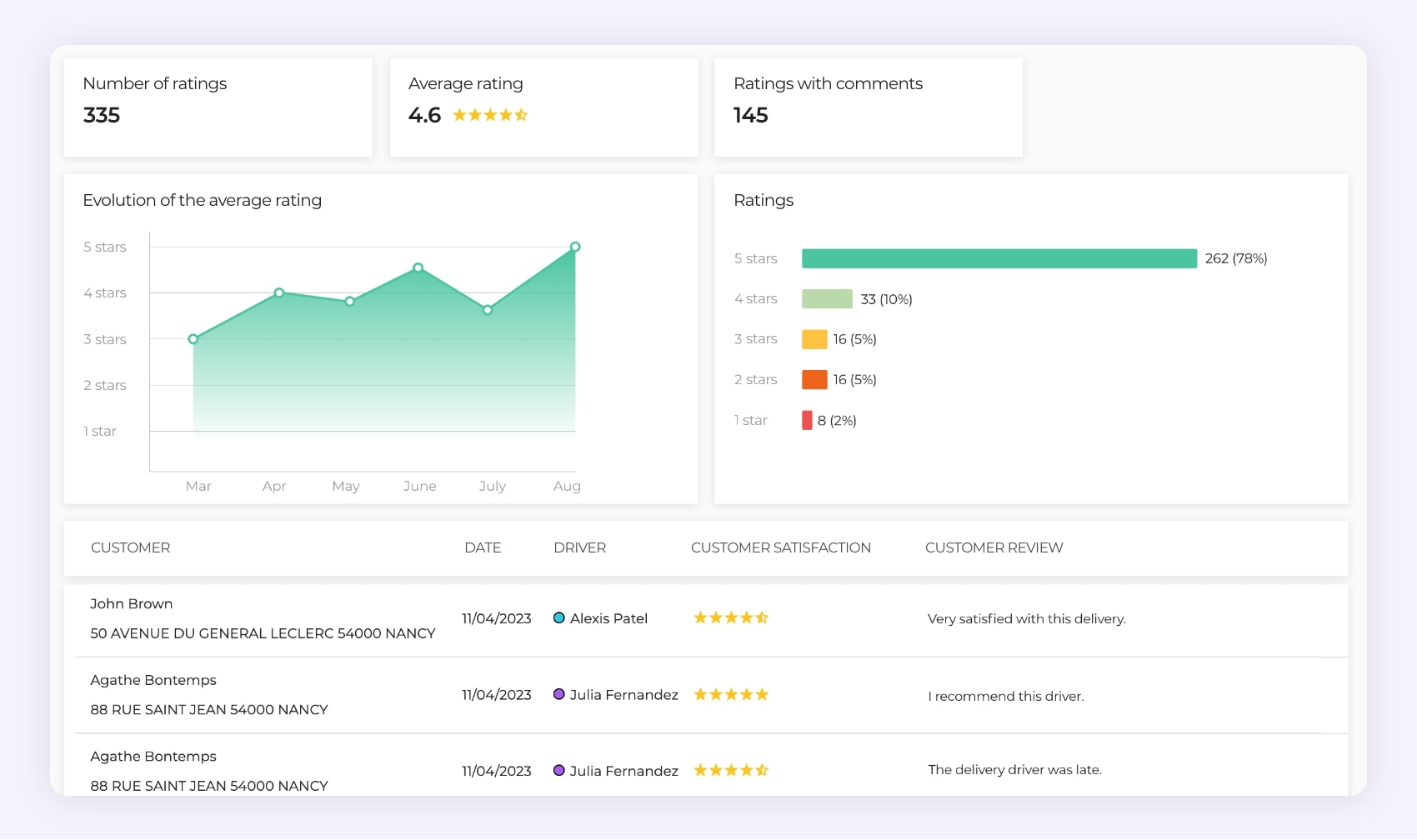
Analysis of customer feedback delivered on AntsRoute.
Anticipate needs
A good customer experience is based on anticipating needs. By using analytical tools to analyse customer data, small and medium-sized businesses can predict purchasing behaviour and proactively manage their stocks. This ensures that the products most in demand are always available, minimising stock-outs and delivery times.
Personalise the customer experience
Every customer is unique, and your customer service must take this into account. Customisation transforms the shopping experience into a truly bespoke journey. By offering tailored delivery options, whether it’s a choice of location, time slot, or even product recommendations based on individual preferences, you strengthen the emotional bond between the customer and your brand.
Customers like to feel special and valued, and a personalised approach meets this expectation.
Ensure total transparency
But that’s not all! We need to go beyond simple customer satisfaction. Proactive communication, with real-time notifications throughout the shipping and delivery process, builds trust. By putting your customers at the heart of your logistics strategy, you’re not just meeting their expectations; you’re creating a lasting relationship that makes your logistics a major competitive advantage.
Transparency isn’t just about providing information, it’s also about building customer loyalty and setting you apart in an increasingly competitive market.
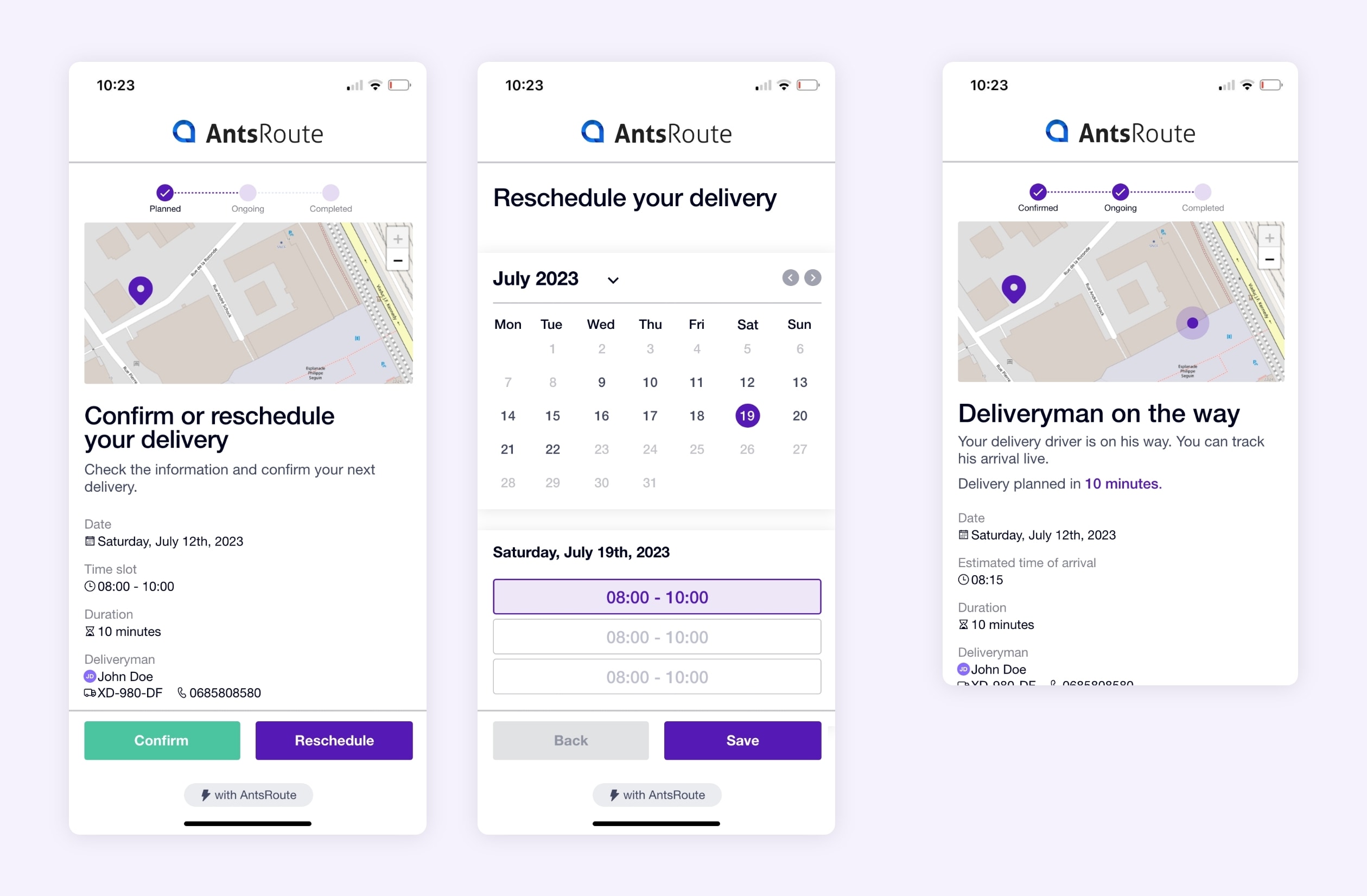
Real-time AntsRoute notifications throughout the shipping and delivery process.
Manage returns and complaints effectively
Managing returns, often perceived as a headache, can become a real asset. By simplifying this process and making it transparent – for example, by offering pre-paid return labels or relay point return options – you can turn a potential source of frustration into a pleasant experience. This builds customer confidence and keeps them coming back, knowing that they can easily return a product if they’re not completely satisfied.
In short, offering an exceptional customer experience through optimised logistics requires a holistic approach. This means integrating anticipation, personalisation, communication and ease of returns. By putting the customer at the heart of your logistics strategy, you can not only stand out from the competition, but also build lasting and profitable relationships. This approach creates a virtuous circle in which customer satisfaction drives loyalty and, by extension, business growth.
Try our AntsRoute software free for 7 days and optimise your logistics now! It’s right here!
WRITTEN BY
Florine Martin
Florine has been a freelance web copywriter since 2021, writing for a variety of clients in a range of sectors. Since the beginning of 2024, she has been writing articles about logistics for our company, AntsRoute.
Free 7-day trial | No credit card required
Contenu
- Developing a Solid Logistics Strategy
- Understanding the importance of logistics strategy
- Adopting a hybrid in-house/outsourcing approach
- Stand out from the competition with an effective differentiation strategy
- Logistics Optimisation for Greater Efficiency
- Automate key processes
- Continual improvement and adoption of innovative technologies
- Rely on sustainable and responsible logistics
- Measure logistics performance
- Customer Experience at the Heart of Logistics Strategy
- Understand customer expectations
- Anticipate needs
- Personalise the customer experience
- Ensure total transparency
- Manage returns and complaints effectively


